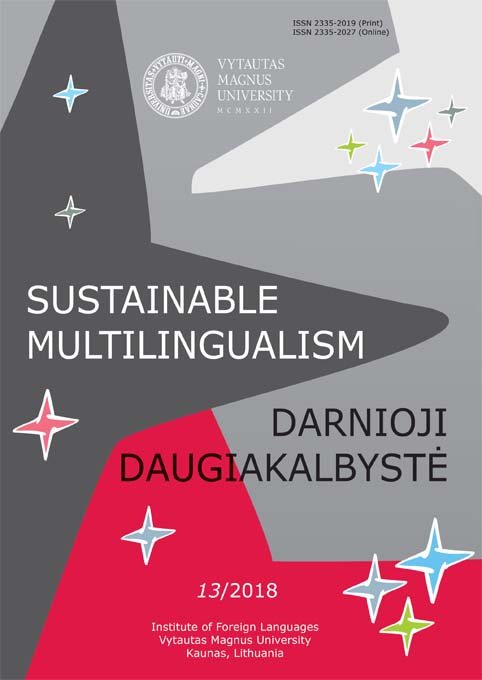Kalbinių gebėjimų ugdymas taikant inovatyvias ugdymo strategijas: istorijų pasakojimo atvejis užsienio kalbų pamokose
Development of speaking abilities using innovative education strategies: storytelling case in foreign languages classrooms
Author(s): Asta Balčiūnaitienė , Ilona TandzegolskienėSubject(s): Education, Foreign languages learning, Theoretical Linguistics
Published by: Vytauto Didžiojo Universitetas
Keywords: foreign language learning; innovative education strategies; young learners; storytelling method;
Summary/Abstract: The article aims to present the storytelling method, which could be applied in teaching/learning foreign languages. Storytelling enables learners to analyse actual topics using the gathered information, to solve problems emphasizing personal experiences and values as well as to listen to other stories and share valuable information. On the one hand, communicative skills are developed through storytelling processes at the same time improving students’ pronunciation, increasing vocabulary, brushing up their grammatical and sentence structure skills. Moreover, young learners’ problem-solving skills are also developed, when they try to remember the received information and answer the questions during the limited time. On the other hand, the use of storytelling method enables teachers to inspire young learners to share their experiences, and to improve their linguistic abilities. The participation in these information sharing activities motivate young learners to be open-minded and encourage them to study individually. The article overviews the importance of the storytelling method on the theoretical level as well as introduces the usefulness of storytelling elements in foreign language classes on the empirical level. The research was planned and performed in X Kaunas Gymnasium, in which the second-grade young learners (average age of the participants was 16 years old) created and presented their stories on the topic “My Festive Day”. The results of the research demonstrate that young learners were more engaged in prepared materials and managed to communicate using new linguistic constructions. What is more, while listening to other presenters they learned about various holiday traditions, different personal attitudes and, consequently, improved their listening, sentence structure and other communicative skills. The participants of the research emphasized that it was interesting for them to prepare storytelling tasks – to write, read the material and to activate the gained information. During the implementation of the storytelling method, a negative aspect related to emotions was observed, and also a lack of stress management and learning to learn skills was determined.
Journal: Darnioji daugiakalbystė
- Issue Year: 2018
- Issue No: 13
- Page Range: 196-214
- Page Count: 19
- Language: Lithuanian

